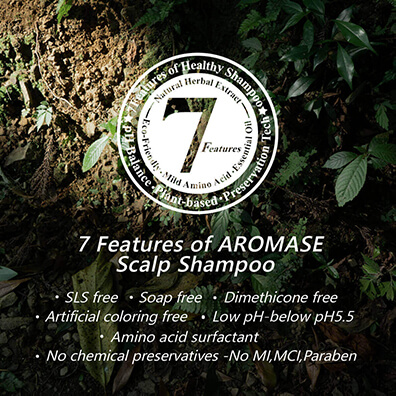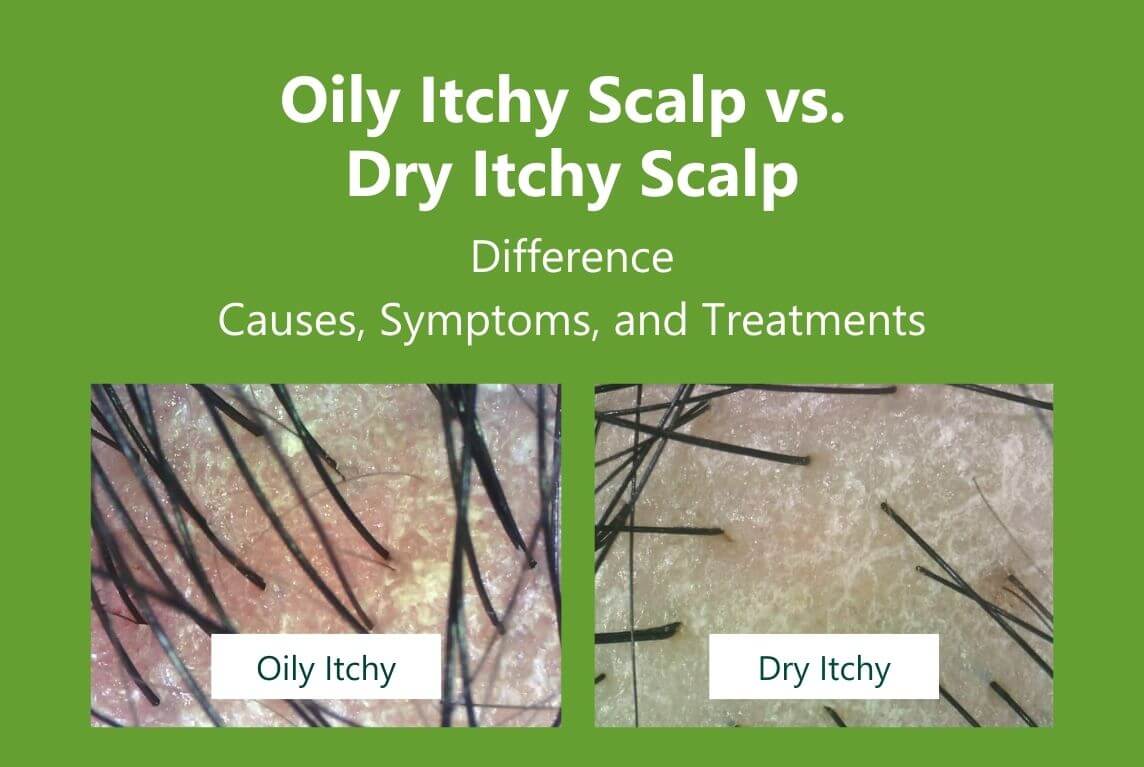
dandruff

An itchy scalp can stem from two very different root causes: oily imbalance or dryness…
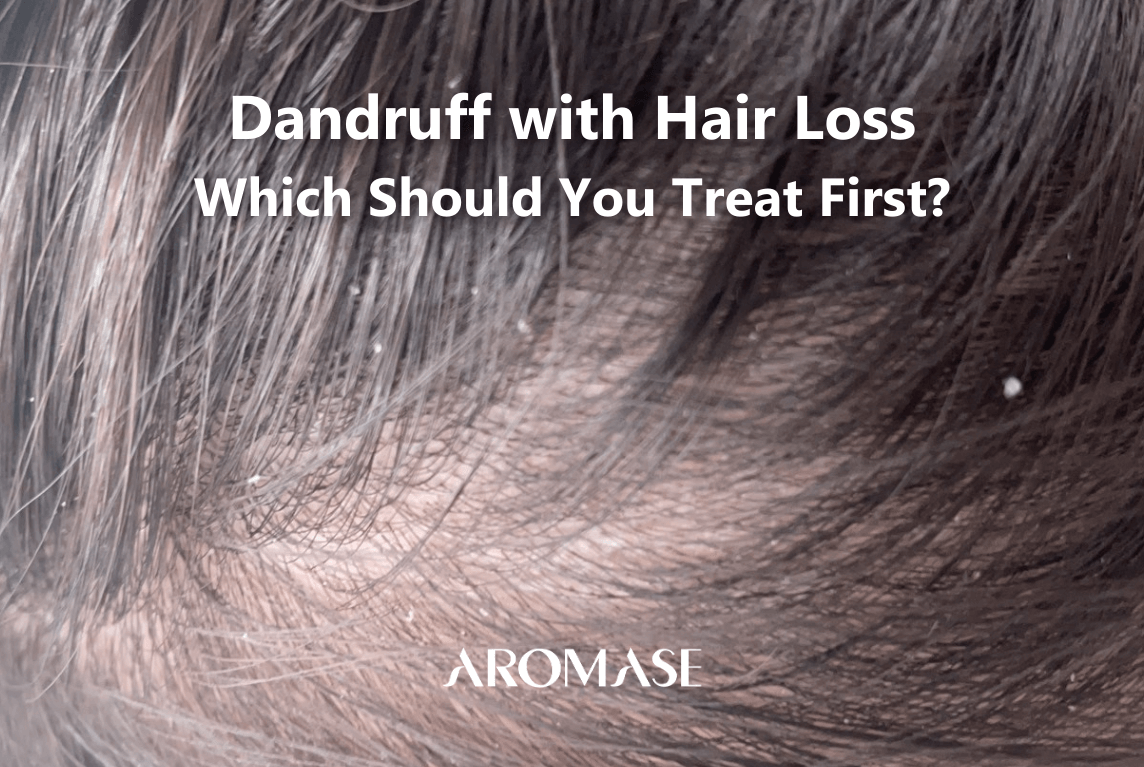
Dandruff with Hair Loss: Which Should You Treat First?
Dealing with dandruff and hair loss at the same time can be frustrating, especially when…
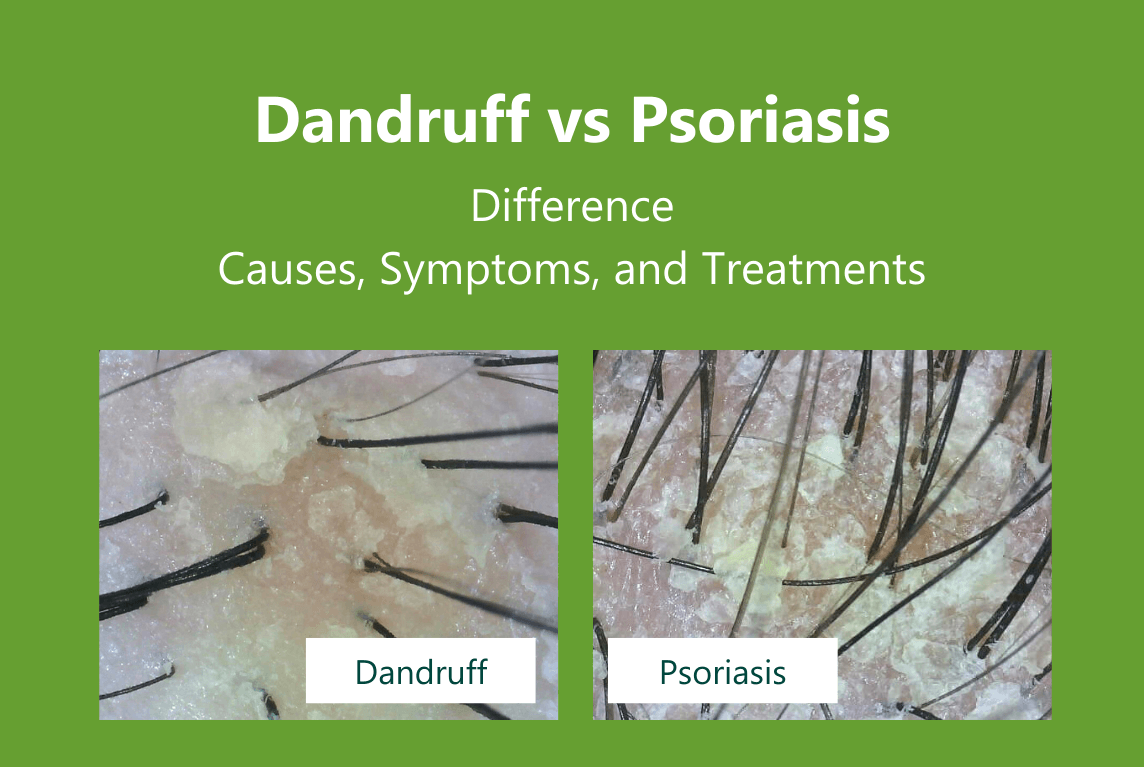
Scalp Psoriasis vs Dandruff: Differences, Pictures, Symptoms & HerbalTreatments
Early-stage scalp psoriasis can resemble oily dandruff, making it easy to misdiagnose. Both conditions cause…
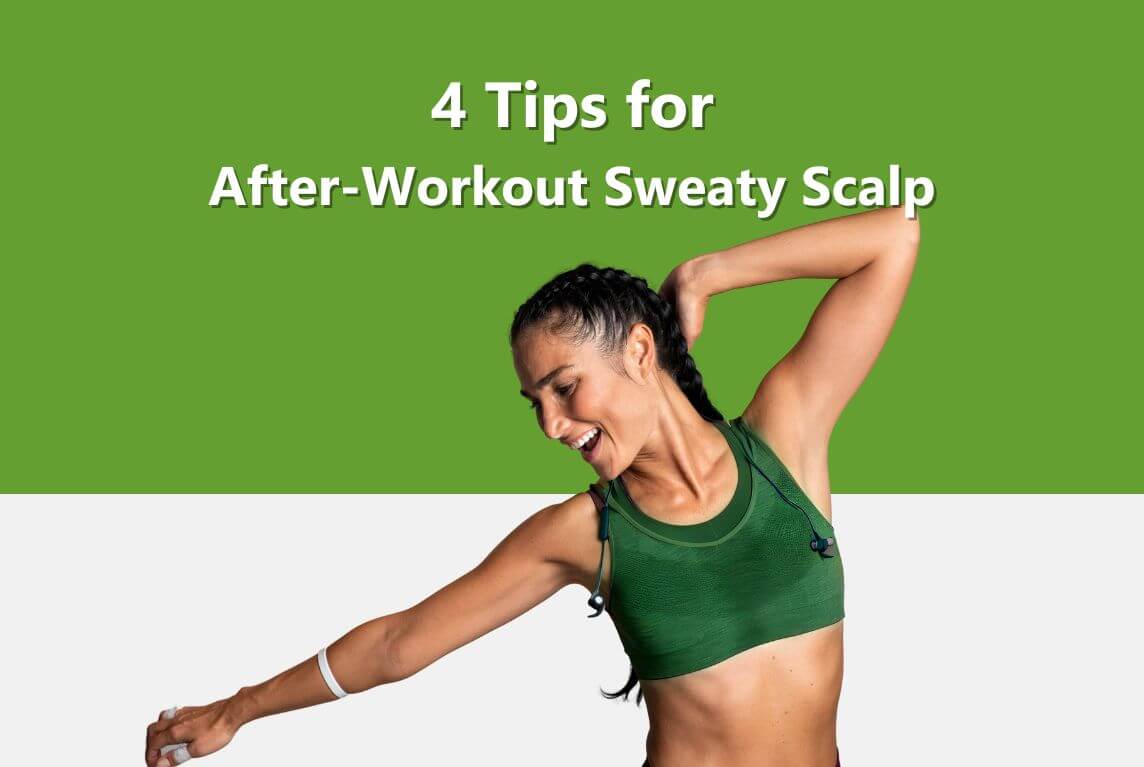
Top 4 Tips for an After-Workout Sweaty Scalp
Have you noticed your scalp gets itchy or greasy after exercising? You’re not alone! We’ve…
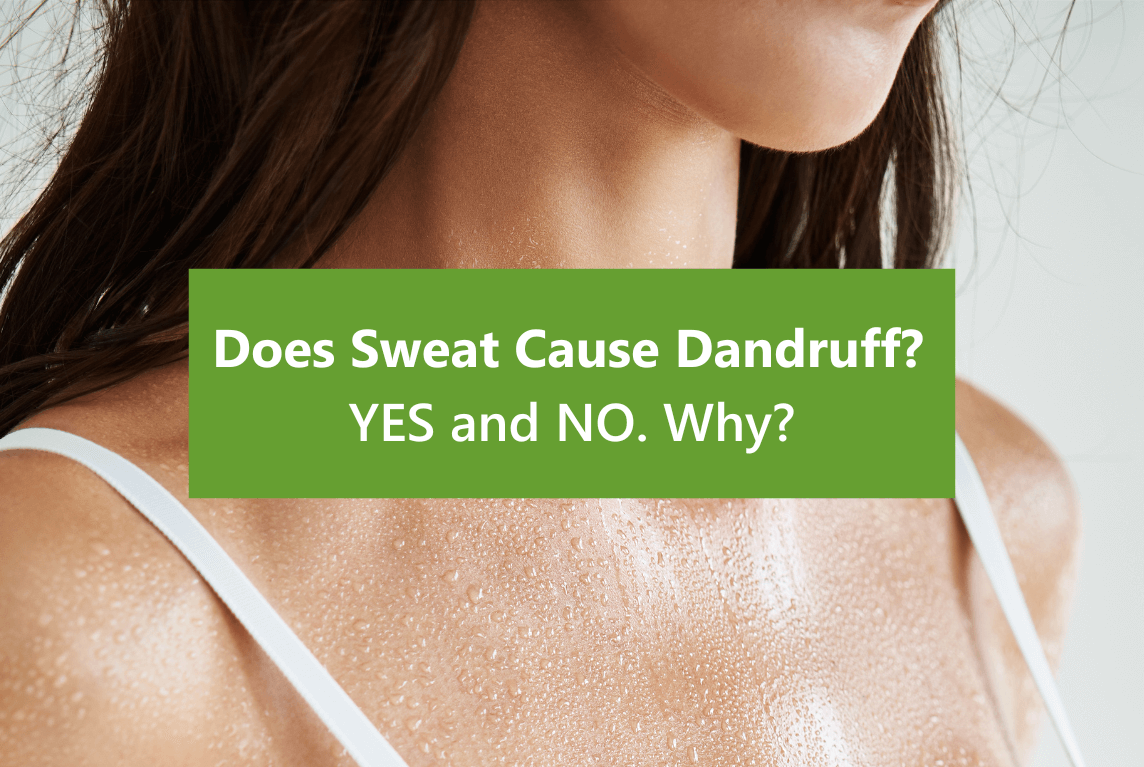
Does Sweat Cause Dandruff? Understanding the Connection
The answer is yes and no. Sweat itself is not the direct cause of dandruff,…
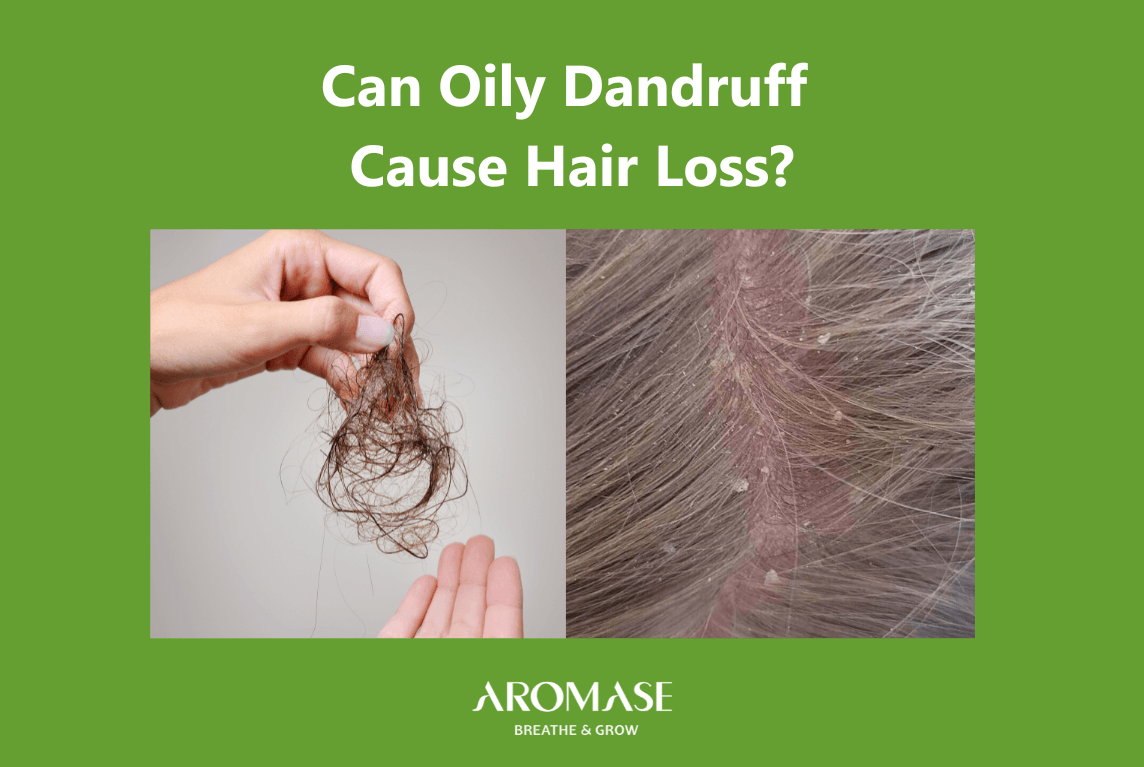
Can Oily Dandruff Cause Hair Loss? 4 Connections Explained
Oily dandruff is mainly caused by an overgrowth of Malassezia due to excess oil secretion…
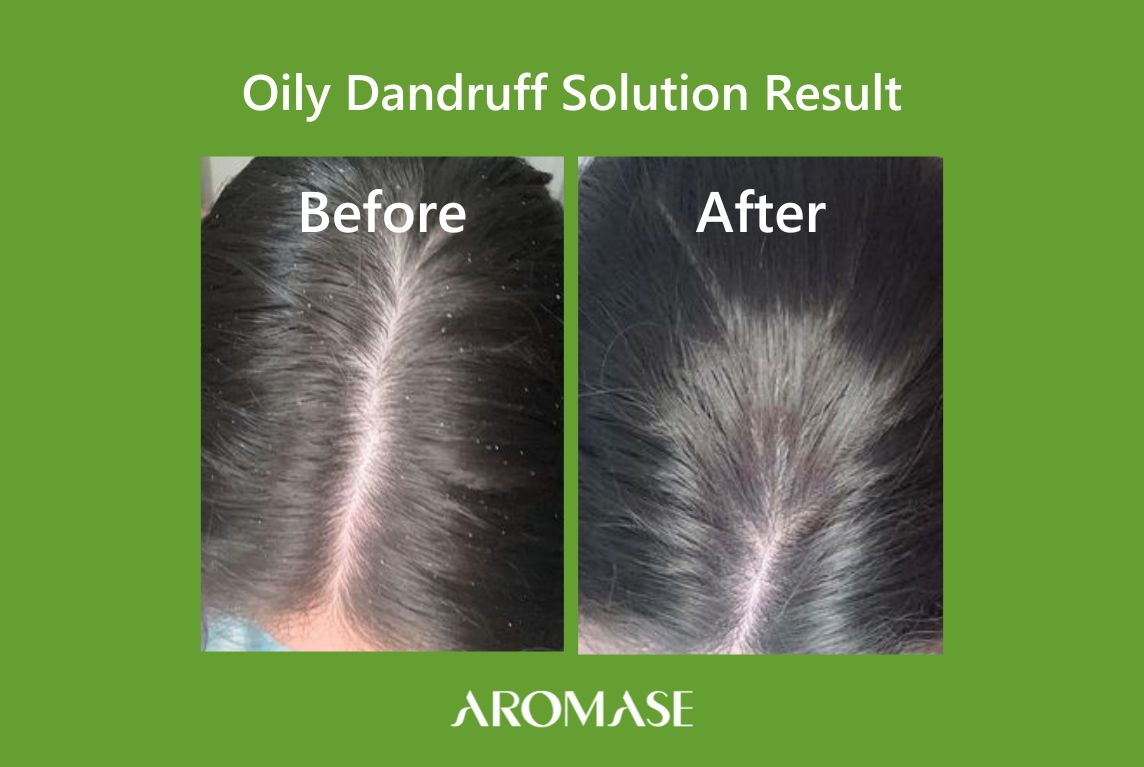
Oily Dandruff Costumer Reviews: Before & After Photos
Oily Dandruff Story: Struggles with greasy hair and persistent dandruff. Two years ago, her hair became…
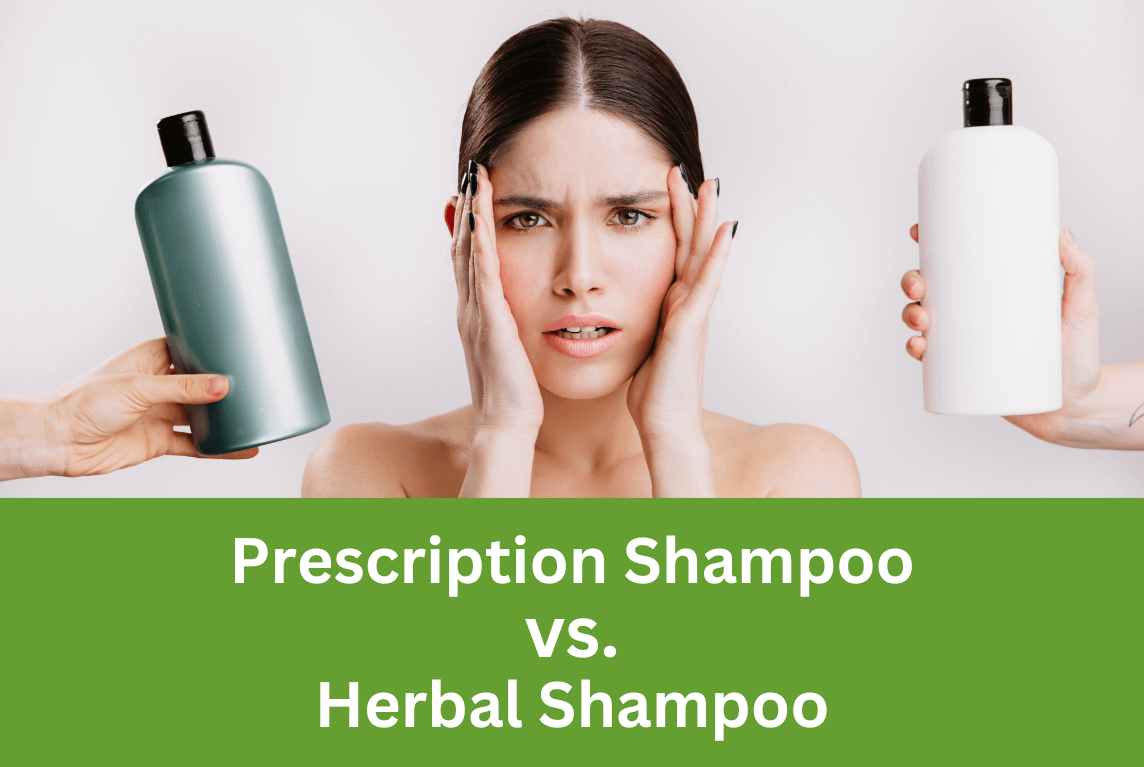
Prescription vs. Herbal Shampoo: Which One Is Right for Your Scalp?
When dealing with scalp issues, selecting the right shampoo is crucial for scalp health. You…
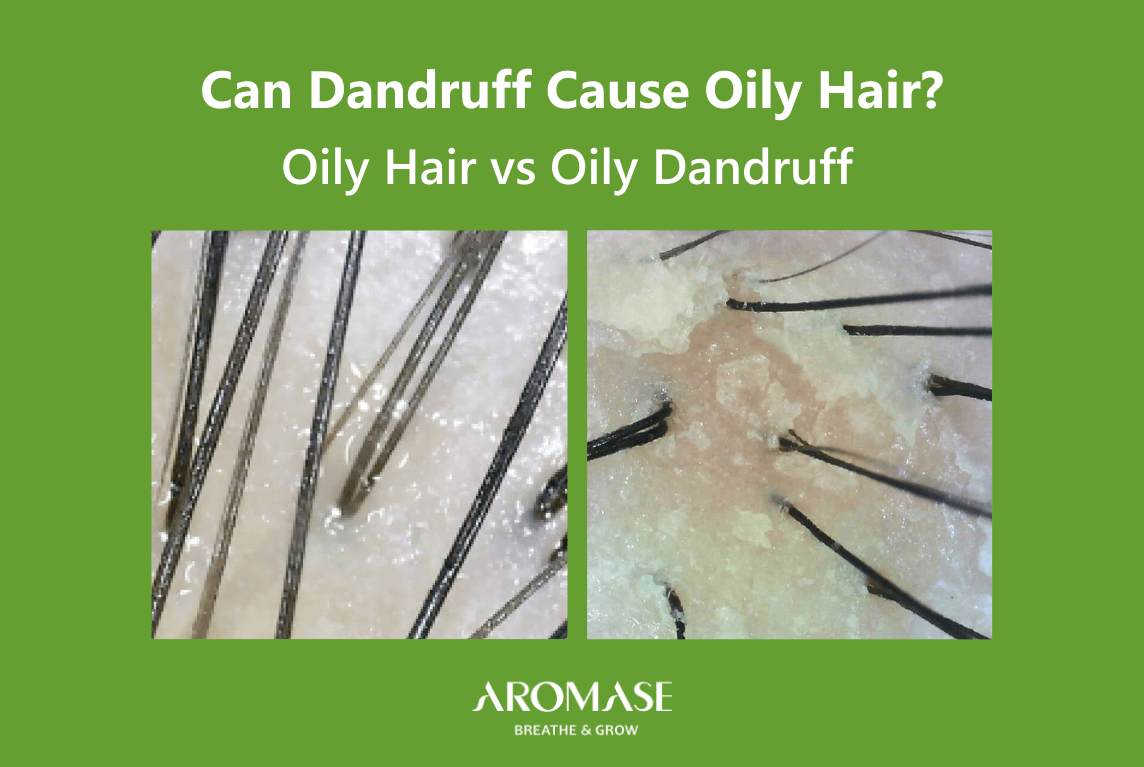
Oily Hair vs. Dandruff: Can Dandruff Cause Oily Hair?
Understanding Dandruff and Oily Hair Before we address the connection between dandruff and oily hair,…
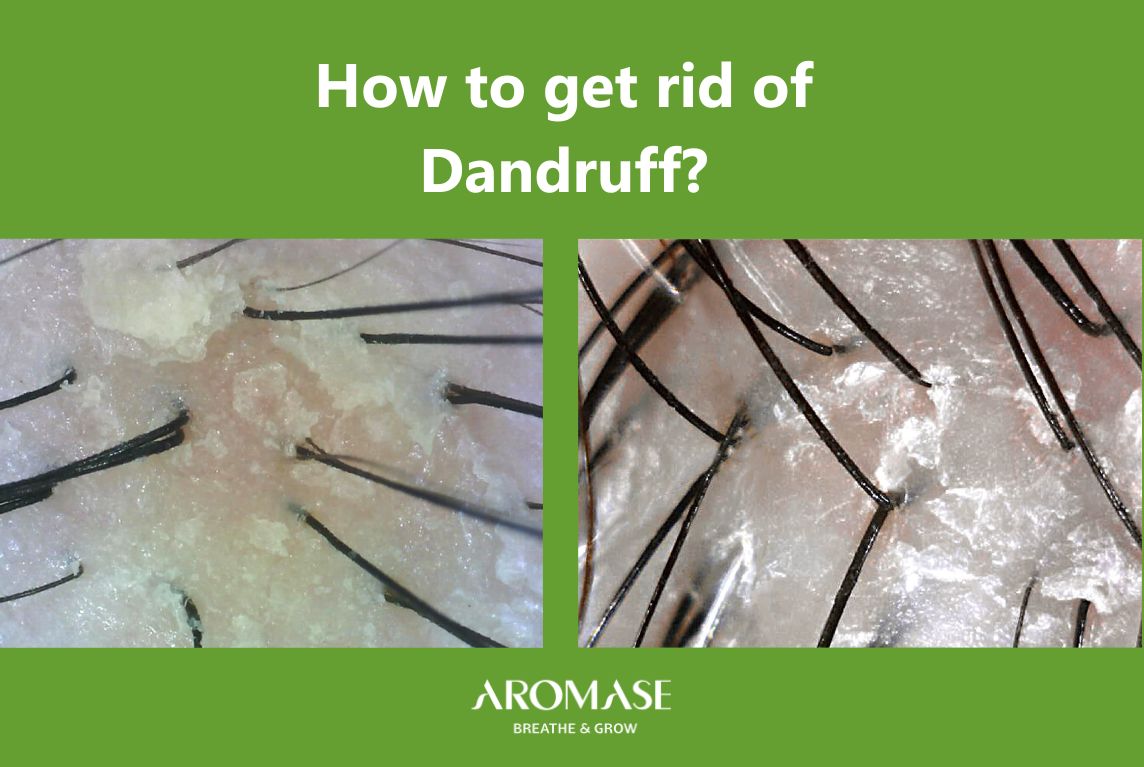
How to Get Rid of Dandruff: Tips for Oily Dandruff & Dry Dandruff
Dandruff is a common scalp condition that causes white flakes of skin to appear on…
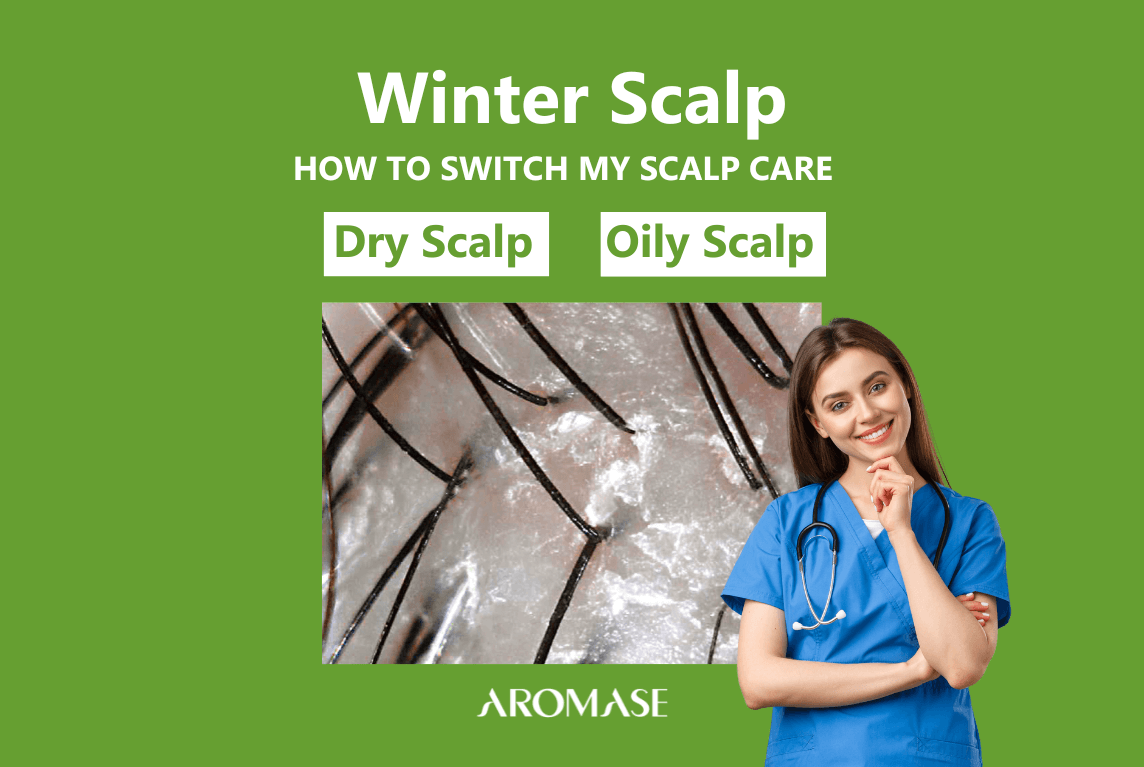
How to Switch Up Your Scalp Care Routine in Winter | Tips for oily scalp & dry scalp
What Causes Winter Scalp? The air can become much drier during the winter due to…
Is Dimethicone Bad? Should I Always Avoid it?
What exactly is dimethicone? Dimethicone is a silicone-based ingredient widely used in skin foundation, skin…
All articles loaded
No more articles to load

An itchy scalp can stem from two very different root causes: oily imbalance or dryness and dehydration. Though both lead to discomfort, treating them requires different approaches. At AROMASE, we believe that understanding your scalp type is the first step toward restoring long-term scalp health. What is an Oily Itchy Scalp? Oily itchy scalp is often caused by excess sebum that mixes with sweat and environmental pollutants, creating an ideal condition for Malassezia yeast overgrowth. This triggers inflammation, pore blockage, and persistent itchiness. Symptoms of Oily Itchy Scalp Greasy scalp within hours after washing Yellowish, sticky dandruff Itching worsens in…
Oily Itchy Scalp vs. Dry Itchy Scalp: Key Differences, Causes, Symptoms, and Treatments
- dandruff 、

Dealing with dandruff and hair loss at the same time can be frustrating, especially when you’re unsure which to address first. If hair loss is stressing you out, you’re not alone—many face this dilemma. Connection Between Dandruff and Hair Loss Dandruff causes flaking, itchiness, and irritation, but it doesn’t directly lead to hair loss. However, constant scratching and inflammation can weaken hair follicles, causing more shedding. ( Did you know there are two types of dandruff? Learn more here.) Hair loss (alopecia), can also result from genetics, stress, hormonal changes, or scalp conditions like seborrheic dermatitis, which may also trigger dandruff.…
Dandruff with Hair Loss: Which Should You Treat First?

Early-stage scalp psoriasis can resemble oily dandruff, making it easy to misdiagnose. Both conditions cause irritation and flaking, but their causes and treatments are entirely different. Oily Dandruff vs. Scalp Psoriasis: Key Differences & Treatments Feature Oily Dandruff Scalp Psoriasis Cause Overgrowth of yeast (Malassezia) Autoimmune disorder Trigger Factors Excess scalp oil, poor hygiene Genetics, immune dysfunction, stress, infections, cold weather, certain medications Symptoms Greasy, yellowish flakes, itchy scalp, redness, worsens with excess oil Thick, silvery-white or red patches, intense itching or burning, flakes that are harder to remove, extends beyond the hairline Treatment 。Herbal-based balancing shampoo 。Daily washing to…
Scalp Psoriasis vs Dandruff: Differences, Pictures, Symptoms & HerbalTreatments

Have you noticed your scalp gets itchy or greasy after exercising? You’re not alone! We’ve received similar concerns from customers. To address this, here are the top 5 essential scalp care tips to ensure your scalp remains healthy, fostering the growth of beautiful hair. Tip#1: Choose a shampoo that matches your scalp needs Since each scalp is unique and influenced by weather, health, and more, it’s vital to pick a shampoo that matches your scalp type—oily, dry, or sensitive. Choosing a shampoo designed for your specific needs is crucial. Confused about what your scalp needs? Take a scalp quiz. …
Top 4 Tips for an After-Workout Sweaty Scalp
- dandruff 、
- scalp care 、

The answer is yes and no. Sweat itself is not the direct cause of dandruff, but it can create an environment that facilitates the conditions dandruff thrives. How Sweat Affects the Scalp Moisture and Warmth: Sweat provides moisture and warmth, creating an ideal environment for Malassezia to proliferate. A sweaty scalp, especially if not washed regularly, can become a breeding ground for this fungus. ( What’s dandruff?) Sebum Production: Sweat can mix with sebum, the natural oil produced by sebaceous glands on the scalp. This combination can make the scalp greasy, which can further exacerbate the growth of Malassezia and…
Does Sweat Cause Dandruff? Understanding the Connection
- dandruff 、

Oily dandruff is mainly caused by an overgrowth of Malassezia due to excess oil secretion from the sebaceous glands, stimulating the scalp and leading to dandruff. Read more on Oily Dandruff: Causes, Treatment & Prevention 4 Links Between Oily Dandruff and Hair Loss While oily dandruff doesn’t directly cause hair loss, its related conditions can lead to thinning hair. Here’s how oily dandruff might result in hair loss: Inflammation and Irritation: The inflammation can weaken hair follicles, disrupting the hair growth cycle and potentially causing hair to shed or thin. Scratching and Damage: The intense itching from oily dandruff can…
Can Oily Dandruff Cause Hair Loss? 4 Connections Explained
- dandruff 、

Oily Dandruff Story: Struggles with greasy hair and persistent dandruff. Two years ago, her hair became extremely oily. Frequent washing, her hair remains greasy and flaky. The flakes are small, white, and not yellow or big. Her hair is oily at the top and dry at the ends. Her Struggles to Treat Oily Dandruff, Nothing Worked! After trying three different solutions, none have effectively addressed her oily dandruff. Tried medical shampoo with no success. Used natural Aloe Vera gel as shampoo, but saw no improvement. Allowed her hair to air dry. Oily Dandruff symptoms look like (Photos) Expert Tips:…
Oily Dandruff Costumer Reviews: Before & After Photos
- dandruff 、

When dealing with scalp issues, selecting the right shampoo is crucial for scalp health. You might choose between prescription shampoos, recommended by dermatologists, and over-the-counter herbal shampoos, known for their natural ingredients. Knowing when to use each can effectively manage your scalp condition. Prescription Shampoo: for Emergency and Acute Conditions Prescription shampoos are specifically formulated to treat particular scalp issues and are usually recommended by healthcare providers for conditions that are severe, persistent, or not responding well to daily shampoo products. Here’s when opting for a prescription shampoo is wise: Severe Dandruff and Seborrheic Dermatitis: When daily dandruff shampoos don’t…
Prescription vs. Herbal Shampoo: Which One Is Right for Your Scalp?
- dandruff 、

Understanding Dandruff and Oily Hair Before we address the connection between dandruff and oily hair, it’s essential to understand what each condition entails. Dandruff, a common scalp condition, results from shedding dead skin cells, often seen as white flakes. It can cause itching and irritation. Contrary to the myth that it’s only due to dryness, dandruff can also stem from fungal infections, sensitivity to hair products, or excess sebum production. ( Learn more about 2 types of dandruff ) Oily hair happens when the scalp produces too much sebum, which can make hair look greasy and heavy, often needing regular…
Oily Hair vs. Dandruff: Can Dandruff Cause Oily Hair?
- dandruff 、

Dandruff is a common scalp condition that causes white flakes of skin to appear on your hair and shoulders. It can be annoying and embarrassing, especially during summer when you want to enjoy the sun and breeze. But what causes dandruff and how to get rid of dandruff? Two main types of dandruff: oily dandruff and dry dandruff. Oily dandruff is caused by excessive production of fungus, resulting in the overgrowth of sebum on the scalp. Sebum can build up on your scalp and create a favorable environment for a yeast-like fungus called Malassezia, which feeds on the oil and…
How to Get Rid of Dandruff: Tips for Oily Dandruff & Dry Dandruff
- dandruff 、

What Causes Winter Scalp? The air can become much drier during the winter due to colder temperatures and lower humidity levels. This lack of moisture in the air can lead to dry skin and hair, including your scalp. The cold weather can strip away natural oils that keep your scalp healthy and hydrated, leading to itchy, flaky, irritated skin. Additionally, indoor heating systems can contribute further to drying out your scalp. When temperatures drop outside, most people turn up their thermostats indoors; this causes heated dry air to circulate throughout homes and offices, creating an even drier environment on your…
How to Switch Up Your Scalp Care Routine in Winter | Tips for oily scalp & dry scalp
- dandruff 、
What exactly is dimethicone? Dimethicone is a silicone-based ingredient widely used in skin foundation, skin moisturizer, 2 in 1 shampoo, hair conditioner, and other skin and hair care products. It gives a silky-smooth and soft-touched texture and helps to retain hair moisture. Is it always bad? Depends on the perspective. Dimethicone is a safe ingredient when used in cosmetic products. Hare the drawbacks and benefits. Drawbacks of using Dimethicone in “Shampoo products” The molecular weight of dimethicone is big, it’s unlikely to be absorbed into the skin. The silky-smooth texture of dimethicone is hard to rinse off when it…
Is Dimethicone Bad? Should I Always Avoid it?
- dandruff 、
All articles loaded
No more articles to load

